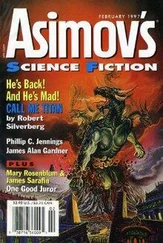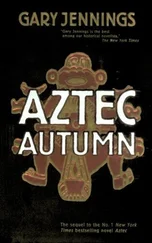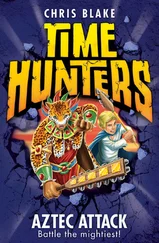Gary Jennings - Aztec
Здесь есть возможность читать онлайн «Gary Jennings - Aztec» весь текст электронной книги совершенно бесплатно (целиком полную версию без сокращений). В некоторых случаях можно слушать аудио, скачать через торрент в формате fb2 и присутствует краткое содержание. Жанр: Старинная литература, на английском языке. Описание произведения, (предисловие) а так же отзывы посетителей доступны на портале библиотеки ЛибКат.
- Название:Aztec
- Автор:
- Жанр:
- Год:неизвестен
- ISBN:нет данных
- Рейтинг книги:4 / 5. Голосов: 1
-
Избранное:Добавить в избранное
- Отзывы:
-
Ваша оценка:
- 80
- 1
- 2
- 3
- 4
- 5
Aztec: краткое содержание, описание и аннотация
Предлагаем к чтению аннотацию, описание, краткое содержание или предисловие (зависит от того, что написал сам автор книги «Aztec»). Если вы не нашли необходимую информацию о книге — напишите в комментариях, мы постараемся отыскать её.
"Anyone who reads, anyone who still lusts for adventure or that book you can't put down, will glory in Aztec."--Los Angeles Times
Aztec
Aztec
Aztec — читать онлайн бесплатно полную книгу (весь текст) целиком
Ниже представлен текст книги, разбитый по страницам. Система сохранения места последней прочитанной страницы, позволяет с удобством читать онлайн бесплатно книгу «Aztec», без необходимости каждый раз заново искать на чём Вы остановились. Поставьте закладку, и сможете в любой момент перейти на страницу, на которой закончили чтение.
Интервал:
Закладка:
Unfortunately for any really greedy treasure seekers, the greater part of the plunder was thrown into the lake, on Cortés's orders, at the causeway's first acáli passage, the nearest to the city here. The Revered Speaker Cuitlahuac could have sent divers down to recover it afterward, and perhaps he did so, but I have reasons for doubting that. Anyway, Cuitlahuac died before Cortés could ask him, either politely or persuasively. And if any Mexíca divers did bring up from the lake the treasury of their nation, either they too have died or they are men of dedicated and exceptional reticence.
I believe the bulk of the treasure still lies there where Cortés had it jettisoned on that Sad Night. But when Tenochtítlan was later razed to the very ground and, after that, when the rubble was cleared for the city's rebuilding in the Spanish style, the unusable remains of Tenochtítlan were simply scraped to the sides of the island—partly for your builders' convenience, partly to increase the island's surface area. So the Tlácopan causeway was shortened by the encroachment of the enlarging island, and that nearest canoe passage is now underground. If I am correct in my estimation of where the treasure rests, it is somewhere deep beneath the foundations of the elegantly señorial buildings lining your avenue called the Calzada Tacuba.
Of all the things I have told of the Sad Night, I have not mentioned the one event that, all by itself, determined the future of The One World. It was the death of just one man. He was no one of any importance. If he had a name, I never heard it. He may have done nothing either praiseworthy or blameworthy in all his life, except to have his roads and his days end here, and I do not know whether he died bravely or cowardly. But during the next day's cleaning of The Heart of the One World, his body was found, cloven by a maquihuitl, and the slaves made an outcry when they found it, because he was neither a white man nor one of our race, and those slaves had never seen such a being before. I had. He was one of those unbelievably black men who had come from Cuba with Narváez, and he was the one whose blemished face had made me shrink away when I saw it.
I smile now—ruefully and contemptuously, but I smile—when I see the swaggering and strutting of Hernán Cortés and Pedro de Alvarado and Beltran de Guzmán and all the other Spanish veterans who now exalt themselves as "Los Conquistadores." Oh, they did some brave and daring deeds, I cannot deny it. Cortés's burning of his own ships on his first arrival in these lands has hardly ever been outdone, as an example of jaunty audacity, even by any caprice of the gods. And there were other factors that contributed to the downfall of The One World—not least the deplorable fact of The One World's turning against itself: nation against nation, neighbor against neighbor, finally even brother against brother. But if any one, single, solitary human being deserves to be honored and remembered with the title of El Conquistador, it is that nameless blackamoor who brought the disease of the small pocks to Tenochtítlan.
He could have given the disease to Narváez's soldiers during their voyage here from Cuba. He did not. He could have given the disease to them, and to Cortés's troops besides, during their march hither from the coast. He did not. He could himself have died of the disease before reaching here. He did not. He lived to visit Tenochtítlan, and to bring the disease to us. Perhaps it was one of those caprices of the gods, to let him do so, and there was nothing we could have done to avert it. But I wish the black man had not then been killed. I wish he had been among those of his fellows who escaped, so he could have shared the affliction with them, soon or later. But no. Tenochtítlan was ravaged by the small pocks, and the disease spread throughout the lake region, into every community of The Triple Alliance, but it never reached Texcala or troubled our enemies there.
In fact, the first of our city folk were beginning to fall ill even before we got the word that Cortés and his company had found refuge in Texcala. You reverend scribes doubtless know the symptoms and progress of the disease. Anyway, I long ago described to you how I had seen, many years earlier, a young Xiu girl die of the small pocks in the faraway town of Tihó. So I need only say that our people died in the same manner: strangling on the swollen tissues inside their noses and throats—or in some manner equally dreadful: thrashing and screaming in violent delirium until their brains could no longer stand the torment, or vomiting blood until their bodies were empty of blood, until they died more husk than human. Of course, I early recognized the disease and told our physicians:
"It is a common affliction among the white men, and they hold it of little account, for they seldom die of it. They call it the small pocks."
"If this is their small pocks," said one doctor, without humor, "I hope they never favor us with any larger. What is it the white men do to keep from dying of it?"
"There is no remedy. Or so they told me. Except to pray." So thereafter our temples were crowded with priests and worshipers making offerings and sacrifices to Patecatl, the god of healing, and to every other god as well. The temple that Motecuzóma had lent to the Spaniards was also crowded, with those of our people who had submitted to baptism and who suddenly, devoutly hoped they had truly been made Christians—meaning they hoped that the Christian god of the small pocks would look on them as simulated white men, and so spare them. They lighted candles and crossed themselves and muttered what they could remember of the rituals in which they had received only slight instruction and to which they had paid even slighter attention.
But nothing stopped the spread of the disease and the dying of it. Our prayers were as futile and our physicians as helpless as those of the Maya had been. Before long, we were threatened with starvation as well, because our affliction could be kept no secret, and the mainland folk dreaded to come near us, so there was a cessation of the traffic of supply-carrying acaltin so necessary to our island's subsistence. But it was not much longer before the disease made its appearance in the mainland communities too, and, once it became evident that all of us of The Triple Alliance were in the same predicament, the boatmen resumed their freighting—or I should say, those boatmen did who were not yet stricken. For the disease seemed selective of its victims in only one particularly cruel respect. I never took sick with it, nor did Béu, nor did any of our contemporaries. The small pocks seemed to ignore those of our age, and those already ill of something else, and those who had always been of feeble constitution. Instead, it seized upon the young and strong and vigorous, not wasting its maleficence on any who for other reasons had not long lives to live.
Our having been stricken by the small pocks is one reason why I doubt that Cuitlahuac ever did anything about recovering the treasure sunk in the lake. The disease came upon us so soon after the departure of the white men—only days after we had cleaned up the litter they left, before we had begun to recover from the strain of the long occupation, before we had in any measure resumed our civic life where it had been interrupted—that I know the Revered Speaker gave no thought at that time to salvaging the gold and jewels. And later, as the disease became a devastation, he had other reasons for neglecting that task. You see, we were for a long while cut off from all news of the world beyond the lake region. Merchants and messengers of other nations refused to enter our tainted area, and Cuitlahuac forbade our own pochtéa and travelers to go elsewhere and possibly carry the contamination. I think it was fully four months after the Sad Night when one of our quimichime mice posted in Texcala summoned up the courage to come from there and tell us what had been happening during that time.
Читать дальшеИнтервал:
Закладка:
Похожие книги на «Aztec»
Представляем Вашему вниманию похожие книги на «Aztec» списком для выбора. Мы отобрали схожую по названию и смыслу литературу в надежде предоставить читателям больше вариантов отыскать новые, интересные, ещё непрочитанные произведения.
Обсуждение, отзывы о книге «Aztec» и просто собственные мнения читателей. Оставьте ваши комментарии, напишите, что Вы думаете о произведении, его смысле или главных героях. Укажите что конкретно понравилось, а что нет, и почему Вы так считаете.











